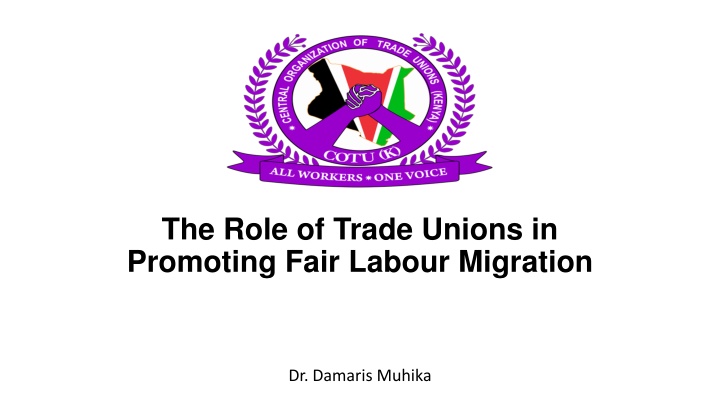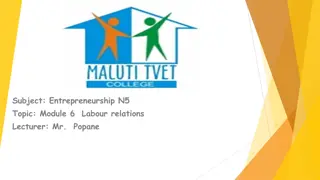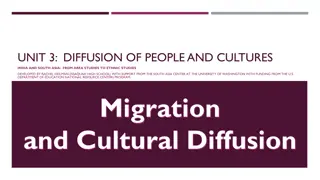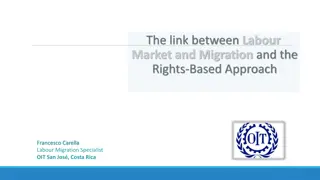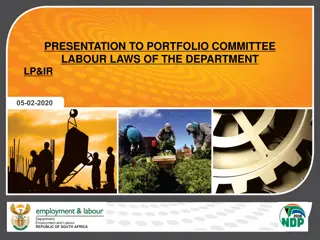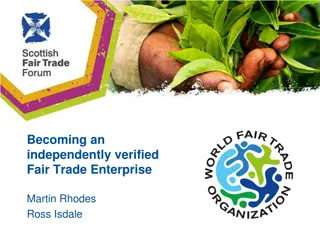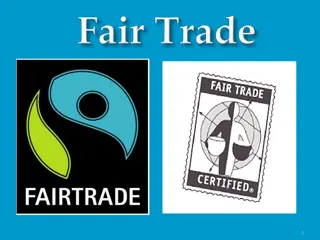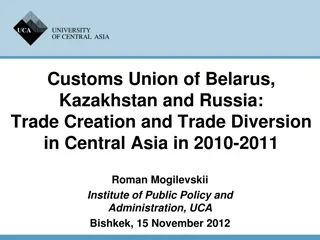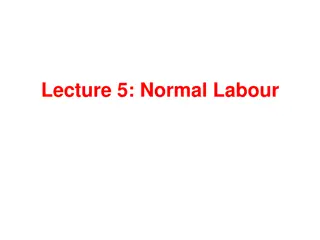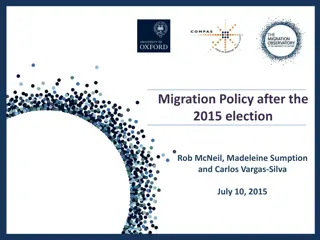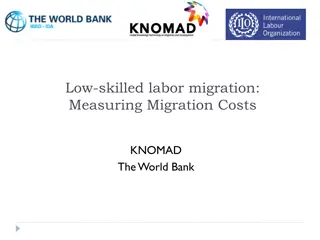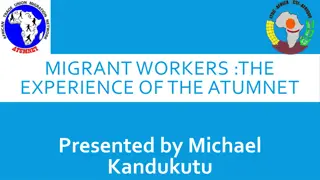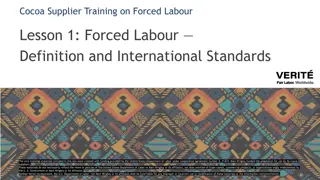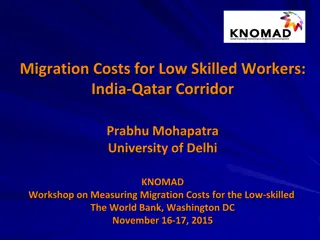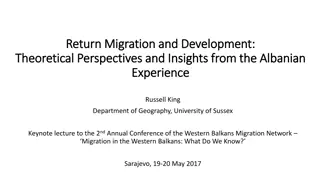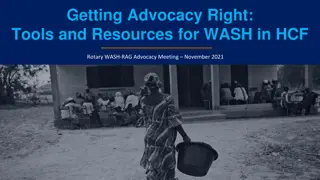Promoting Fair Labour Migration Through Trade Union Advocacy
The role of trade unions in promoting fair labour migration is crucial, ensuring migrant workers' rights are protected. Advocacy efforts include fair recruitment practices, fighting against exploitation, and advocating for decent work conditions.
Download Presentation

Please find below an Image/Link to download the presentation.
The content on the website is provided AS IS for your information and personal use only. It may not be sold, licensed, or shared on other websites without obtaining consent from the author.If you encounter any issues during the download, it is possible that the publisher has removed the file from their server.
You are allowed to download the files provided on this website for personal or commercial use, subject to the condition that they are used lawfully. All files are the property of their respective owners.
The content on the website is provided AS IS for your information and personal use only. It may not be sold, licensed, or shared on other websites without obtaining consent from the author.
E N D
Presentation Transcript
The Role of Trade Unions in Promoting Fair Labour Migration Dr. Damaris Muhika
ILOs Philadelphia Declaration of 1944 Declaration states that: labour is not a commodity to be traded in markets for the lowest price; workers are human beings with rights, needs and aspirations. The declaration emphasized that all workers, regardless of their contractual arrangement or employment status, must equally enjoy adequate labour protection and humane working conditions.
COTU (K) Mission Statement To secure, protect and promote labour rights and the welfare of all workers in Kenya ( within and outside borders )
Is Labour Migration as a Trade Union Issue? Migrant workers, regardless of their status, are first of all workers. As such, they have rights, including freedom of association the right to form or join a trade union; Migrant workers face some of the most serious decent work deficits hence a need for trade union voice.
Advocate for Fair Recruitment Advocate for strict regulation of PRAs in line with the the Labor Institutions (General) Regulations (2014) e.g accreditation of all PRAs; Influence policy -advocate for inclusion in NEA to enhance enforcement of existing policies; Lobby for enactment of the National Labour Migration Policy which has been pending since 2010; Advocate for proper inspection of private employment agencies for compliance; Advocate for harmonization of recruitment practice within the region and support inter-country surveillance along the transit routes
Advocacy against labour exploitation and abuse of migrant workers Advocate for full application of the Convention 97 and ratification Conventions 143, 181, 189 and 190; Advocate for inclusion of trade unions in negotiation of bilateral agreements to ensure decent work agenda Advocating for the use of model employment contracts and recruitment process, based on ILO standards for decent work conditions (e.g. working time, wages, leave entitlements, among others); Monitoring working conditions of migrant workers and protecting their rights while abroad; Collaborating with Tus abroad to uphold and protect the rights of migrant workers; Advocate for posting of more labour attaches in key missions abroad;
Organizing migrant workers: Freedom of Association and Collective Bargaining Identify obstacles to freedom of association for migrant workers and assess the most effective measures and strategies to address them; Facilitate the development of workers networks in destination countries to aid organizing; Leverage on digital space to organize and recruit migrant workers e.g.ITUC online portal. Digital platforms will to educate and sensitise them on labour rights and empower them with leadership and negotiating skills; Participate actively in negotiation of BLAs between countries; Enter into Cooperation Agreements/MOUs between unions in origin and destination countries-to support organizing, CBA, dispute resolution; Assessing whether complaint and dispute resolution mechanisms are available accessible and functional; Advocate for a functional LMIS to monitor migration trends and generate evidence for prompt interventions;
Promoting social protection of migrant workers Support establishment of applicable social protection floors as a fundamental right e.g the proposed Migrant Workers Welfare Fund; Support establishment of bilateral and multilateral social security agreements and extend social protection systems to migrant workers; Support portability of social protection benefits across borders; Benchmark with trade unions in Philippines and Nepal whose migrant workers are said to enjoy relatively better terms
Promote Skills development i. Advocate for migrant workers skills development through: Supporting pre-departure training E.g. the Homecare Management Curriculum on 17 October 2018. The curriculum is offered as part of the pre-departure orientation at NITA; Promoting portability of skills-recognition, certifications of skills and qualifications e.g. RPL for pre-departure and returnees; ii.
Advocate for gender-responsive policy implementation in labour migration governance Ensure reproductive rights of men and women migrants of child bearing age e.g. maternity protection; Eliminate discrimination on the basis of pregnancy (e.g. prohibition to oblige women migrants to undergo pregnancy tests before they travel or to dismiss and/or deport them when they become pregnant during employment); Design special measures to combat harmful gender stereotypes and eliminate discrimination in migration for employment;
Providing support to migrant workers in accessing redress mechanisms i. Awareness creation: Provide country-specific information about conditions of employment, social security and relevant international labour standards-MRCs can facilitate; ii. Sensitization of migrants and the public to create more awareness on issues of migration so as to reduce and ultimately eliminate misconceptions, mistrust, ignorance, exploitation and abuses-media campaigns can apply; iii. Establishing links with diaspora communities abroad and participating in the development of appropriate policies and programmes for the socio-economic reintegration of returnee migrant workers; iv. providing assistance to workers in areas such as legal representation, follow up on medical treatment, support for immigration issues, or collaboration with labour attach s of countries of origin. v. Conduct surveys on labour migration trends for evidence-based advocacy; vi. Mobilize financial and technical support from international partners to implement programs aimed at empowering migrant workers.
